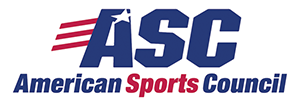ESPN Ombudsman Responds to Save Oregon Wrestling Controversry
ESPN Ombudsman Le Anne Schreiber responded to our letter. Her response follows:
Dear Eric,
Thank you for your message. I asked for an explanation of why the SOW ad was first accepted, then rejected shortly before scheduled airing, and this is the answer I received from a department called Commercial Operations, the traffic controllers for ads on ESPN: “The buy with the advertiser was accepted [on Feb. 29] but the creative was still subject to approval We first received this creative on 3/17, and it was not approved for air due to the advocacy message it promotes. Per ESPN Commercial guidelines: ESPN does not accept advertising that consists of, in whole or in part, political advocacy or issue-oriented advertising. We felt that an ad that encouraged people to support one side of a controversial issue clearly constituted advocacy.”
So the whiplash of acceptance/rejection was the result of standard ad approval process, and the delay in receiving creative. That leaves the question of how ESPN determines what is “political advocacy or issue-oriented advertising.” I watched the commercial, presuming it made explicit reference to Title IX, but since it does not, I understand why that judgment call was confusing to SOW. I do not personally have enough background in previous, comparable applications of this policy to pass an informed judgment on it. If you want to pursue the matter further, I would suggest contacting Commercial Operations (contact information redacted — EMc) for further clarification of what in the ad triggered application of that policy.
I know this response does not completely address your concerns, but my main purview is editorial content, and I simply do not feel I have enough experience in these kinds of advertising decisions to do more than direct you to the source of those decisions and hope that will eliminate any further misunderstandings between SOW and ESPN.
Best,
Le Anne Schreiber
I give Schreiber credit for answering our query, but as she even seems to concede, ESPN corporate is still on the hook. More later.
UPDATE: In a followup note, I asked Schreiber if she was going to address our question in her upcoming monthly column:
Eric, I most likely will not address this application of the ad policy in the column, partly because I do not have the expertise, but also because my primary mandate is to address “ESPN’s coverage of news, issues or events.” I receive about 2000 messages a month, covering a broad array of issues, and so the selection of topics I address in the column is an extremely difficult one each month. Usually, I try to identify a systemic problem that underlies various specific complaints — i.e, a hundred different complaints about a hundred different event broadcasts might all have their root in espn’s approach to announcing, whether that event is tennis, baseball, football, etc. Complaints like yours, that I think are important but unlikely to make it into the limited column space, I handle behind the scenes, extracting and relaying information between espn and the message writer. Given the volume of mail I recieve (and I am a solo operation), I have to pick and choose carefully even to be able to do that. My own issue: ESPN needs a whole fleet of ombudsmen.
Best,
Le Anne Schreiber
As I wrote to Schreiber, I credit her for at least answering our question, but it seems clear to me that ESPN, for whatever reason, wants this story to go down the memory hole. We’ve also sent an additional note to Commercial Operations, as Schreiber suggested, though I’m not holding my breath on a response. More later.
